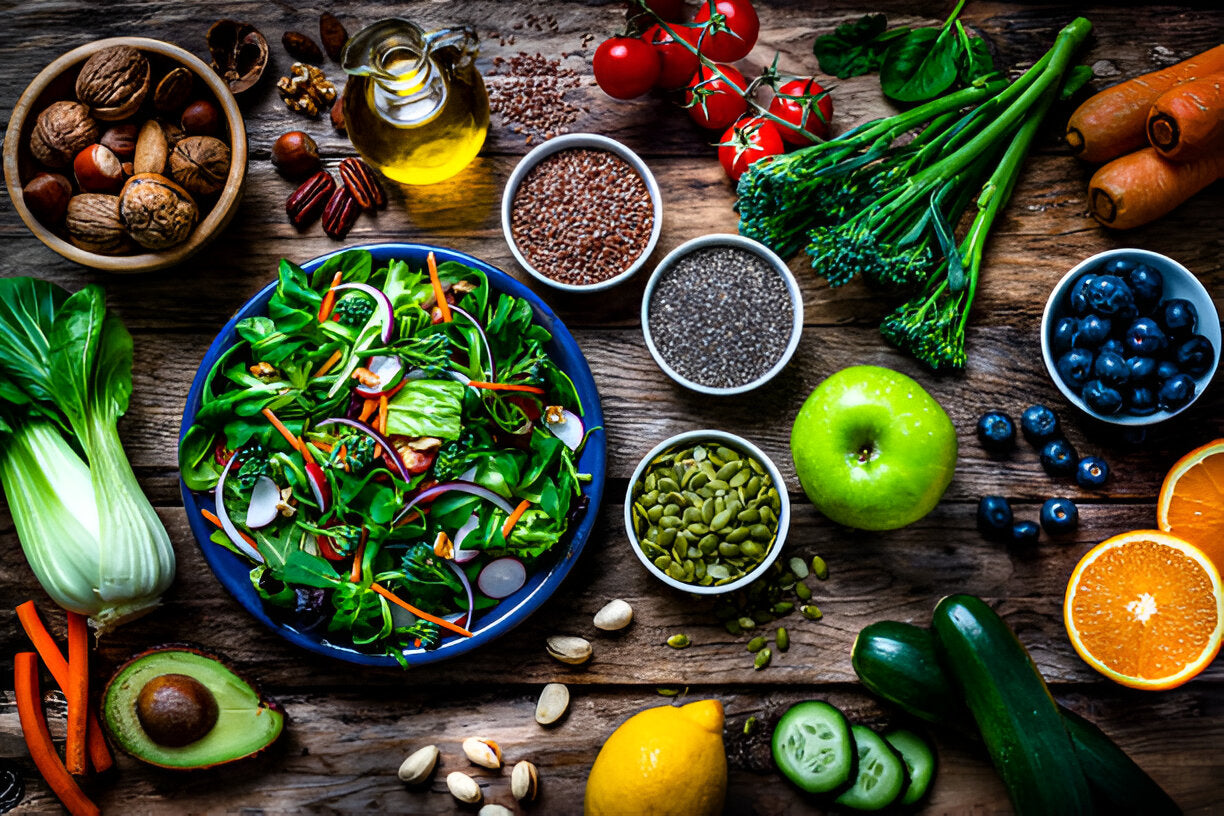The concept of "food as medicine" has been around for centuries, but it's gaining renewed attention in our modern world. As we seek more natural ways to support our health, many are turning to their kitchens as a source of healing. This article explores specific foods that can help address common health issues like colds, digestive problems, and inflammation, with a focus on readily available items like ginger, turmeric, honey, and garlic.
The Power of Healing Foods

Healing foods are those that not only provide essential nutrients but also contain compounds that can help prevent or alleviate various health conditions. By incorporating these foods into our daily diet, we can support our body's natural healing processes and potentially reduce our reliance on over-the-counter medications for minor ailments.
1. Ginger: The Versatile Healer
Ginger has been used for centuries in traditional medicine systems worldwide. This root is packed with bioactive compounds that offer numerous health benefits.
Benefits:
- Nausea relief: Ginger is particularly effective in reducing nausea, including morning sickness and motion sickness.
- Anti-inflammatory: It can help reduce inflammation in the body, potentially easing arthritis symptoms.
- Digestive aid: Ginger promotes healthy digestion and can help relieve bloating and gas.
- Immune booster: It may help strengthen the immune system, making it valuable for fighting colds and flu.
How to use:
- Steep fresh ginger slices in hot water for a soothing tea
- Add grated ginger to stir-fries or smoothies
- Try candied ginger as a natural remedy for nausea
2. Turmeric: The Golden Spice
Turmeric, with its active compound curcumin, is renowned for its potent anti-inflammatory and antioxidant properties.
Benefits:
- Reduces inflammation: Turmeric can help alleviate symptoms of inflammatory conditions like arthritis.
- Supports brain health: It may help improve memory and reduce the risk of cognitive decline.
- Aids digestion: Turmeric can help reduce bloating and gas.
- Boosts immune function: Its antimicrobial properties may help fight off infections.
How to use:
- Add turmeric to curries, soups, or rice dishes
- Make a turmeric latte with plant-based milk and a pinch of black pepper (which enhances absorption)
- Try a turmeric supplement for more concentrated doses
3. Honey: Nature's Sweet Healer
Raw, unprocessed honey is more than just a natural sweetener; it's a powerhouse of health benefits.
Benefits:
- Cough suppressant: Honey can be as effective as over-the-counter cough medicines in reducing cough frequency and severity.
- Wound healing: Applied topically, honey can help heal minor cuts and burns.
- Antibacterial properties: It may help fight off certain types of bacteria.
- Sore throat relief: Its coating action can soothe a sore throat.
How to use:
- Take a spoonful of raw honey for cough relief
- Add honey to herbal teas for added benefits
- Use as a natural sweetener in place of refined sugar
4. Garlic: The Pungent Protector
Garlic has been valued for its medicinal properties for thousands of years. Its active compound, allicin, is responsible for many of its health benefits.
Benefits:
- Immune booster: Garlic may help reduce the severity and duration of common colds.
- Heart health: It can help lower blood pressure and cholesterol levels.
- Antibacterial and antifungal: Garlic has natural antimicrobial properties.
- Anti-inflammatory: It may help reduce inflammation in the body.
How to use:
- Add fresh, crushed garlic to your cooking
- Try roasted garlic as a spread
- Consider garlic supplements for more concentrated doses
Addressing Specific Ailments

1. Colds and Flu
- Ginger and turmeric tea with honey: Combine these powerhouses for a potent immune-boosting drink.
- Garlic soup: A comforting way to harness garlic's antimicrobial properties.
2. Digestive Issues
- Ginger tea: Sip on ginger tea to soothe an upset stomach or reduce nausea.
- Turmeric golden milk: This traditional drink can aid digestion and reduce inflammation.
3. Inflammation
- Turmeric and black pepper: Combine these in dishes to maximize anti-inflammatory benefits.
- Garlic and olive oil: Use as a base for dressings or marinades for an anti-inflammatory boost.
Other Healing Foods to Consider
1. Cayenne Pepper
Benefits: Pain relief, metabolism booster, digestive aid
How to use: Add to soups, stews, or as a seasoning for meats
2. Apple Cider Vinegar
Benefits: May help regulate blood sugar, support weight loss, improve digestion
How to use: Dilute in water as a daily tonic or use in salad dressings
3. Bone Broth
Benefits: Supports gut health, may reduce inflammation, rich in minerals
How to use: Sip as a warm beverage or use as a base for soups and stews
4. Fermented Foods (like sauerkraut and kimchi)
Benefits: Support gut health, boost immune function
How to use: Add as a side dish to meals or incorporate into sandwiches and salads
Creating a Healing Kitchen
To make the most of these healing foods:
- Stock your pantry with a variety of herbs and spices
- Keep fresh ginger and garlic on hand
- Invest in high-quality honey and turmeric
- Experiment with new recipes that incorporate these healing foods
Safety Considerations
While these foods are generally safe for most people, it's important to keep in mind:
- Some herbs and spices can interact with medications
- Honey should not be given to infants under one year old
- If you have any chronic health conditions, consult with a healthcare provider before making significant dietary changes
Conclusion
Your kitchen can be a powerful ally in maintaining good health and addressing common ailments. By incorporating healing foods like ginger, turmeric, honey, and garlic into your daily diet, you can support your body's natural healing processes. Remember, while these foods can be beneficial, they should complement, not replace, professional medical advice and treatment. Listen to your body, experiment with these natural remedies, and enjoy the journey towards a healthier you through the power of healing foods.




